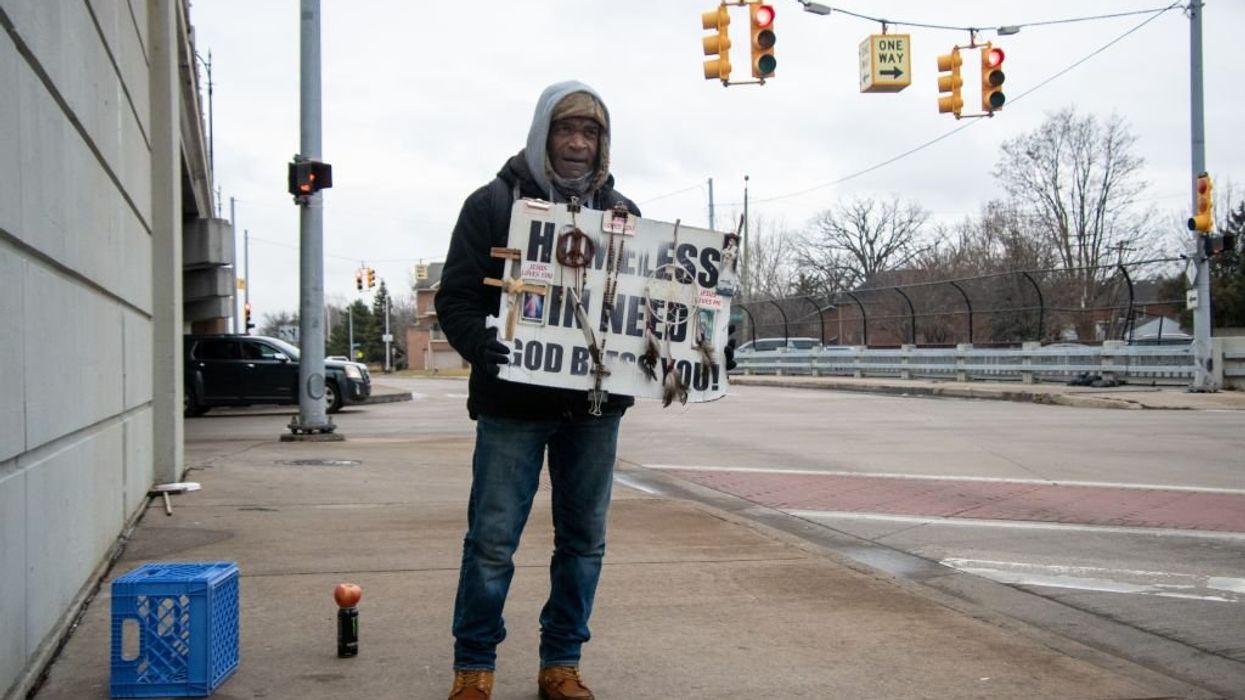© 2024 Blaze Media LLC. All rights reserved.
"Let's look at the data..."
A Lancaster, Pa., high school is defending its decision to segregate students according to race and gender in an attempt to foster higher standards of student achievement.
The plan recently implemented at McCaskey East High School segregates black students from the rest of the school body and then divides them further according to gender, dividing black females and black males. The separation is brief -- just six minutes each day and 20 minutes twice a month -- but the controversial move is drawing some heated criticism and stirring comparisons to past "separate but equal" racial segregation schemes.
Bill Jimenez, the school's principal, defended the policy Wednesday, claiming that the school's experiment was an attempt to improve the performance of black students whose performance was noticeably lagging behind their fellow students. According to Jimenez, research suggests that same-race classes led by strong same-race role models may improve academic results.
"One of the things we said when we did this was, 'Let's look at the data, let's not run from it. Let's confront it and see what we can do about it,'" he told Lancasteronline.com.
The idea originated with Angela Tilghman, a McCaskey East instructional coach who was alarmed at the poor academic performance of the school's black students.
Only about a third of McCaskey's African-Americans scored proficient or advanced in reading on last year's PSSAs, compared with 60 percent of white students and 42 percent of all students.Math scores were even worse, with just 27 percent of black pupils scoring proficient or advanced.
Research has shown, Tilghman said, that grouping black students by gender with a strong role model can help boost their academic achievement and self-esteem.
She and fellow instructional coach Rhauni Gregory volunteered to mentor the African-American girls, and Michael Mitchell and Willie Thedford each took a homeroom of black males.
No other students were divided by race, Jimanez said, although pupils enrolled in the school's English language learners program were paired with ELL teachers.
Initially, some McCaskey East students and staff objected to separating out black students. Some juniors asked to go back to their old homerooms. Others complained that the experiment ran counter to the culture of McCaskey, long a melting pot of students and staff from many diverse backgrounds.
Now, mentors are closely watching students' performance in the segregated classrooms, including grades, test scores and attendance.
"Nothing in all the world is more dangerous than sincere ignorance and conscientious stupidity," one math teacher and mentor, Michael Mitchell, remarked, quoting the late Dr. Martin Luther King, Jr. Mitchell now says he hopes to inspire his black male students during their short daily meetings, noting that some of them were even failing gym class.
"They're all young. They're all strong. They're all athletic. But they're failing because they chose not to participate," he said. "That's an example of 'conscientious stupidity.' You can do but you choose not to do. These are the things we need to get away from."
In the few weeks since the mentors began holding their homeroom meetings, the mentors claim they've seen changes in their students. "You notice the level of interaction is different, the way they talk is different," one mentor pointed out. "One of the simplest things you notice right away is, before, the pants were hanging down; now, they are up. The shirt is tucked in, where before, it was hanging out. That's tangible."
The test score results haven't yet been calculated, but at least one student, junior Mikeos Ango, claims the new set-up has made a difference for him. "It definitely makes you think about stuff more," he said.
"We have great role models as our teachers right now. They've been in our shoes before, and so we learn something from them every day."
What do you think: Are segregated classrooms acceptable? Are academic achievement and racial cohesion mutually exclusive?
Want to leave a tip?
We answer to you. Help keep our content free of advertisers and big tech censorship by leaving a tip today.
Want to join the conversation?
Already a subscriber?
more stories
Sign up for the Blaze newsletter
By signing up, you agree to our Privacy Policy and Terms of Use, and agree to receive content that may sometimes include advertisements. You may opt out at any time.
© 2024 Blaze Media LLC. All rights reserved.
Get the stories that matter most delivered directly to your inbox.
By signing up, you agree to our Privacy Policy and Terms of Use, and agree to receive content that may sometimes include advertisements. You may opt out at any time.


